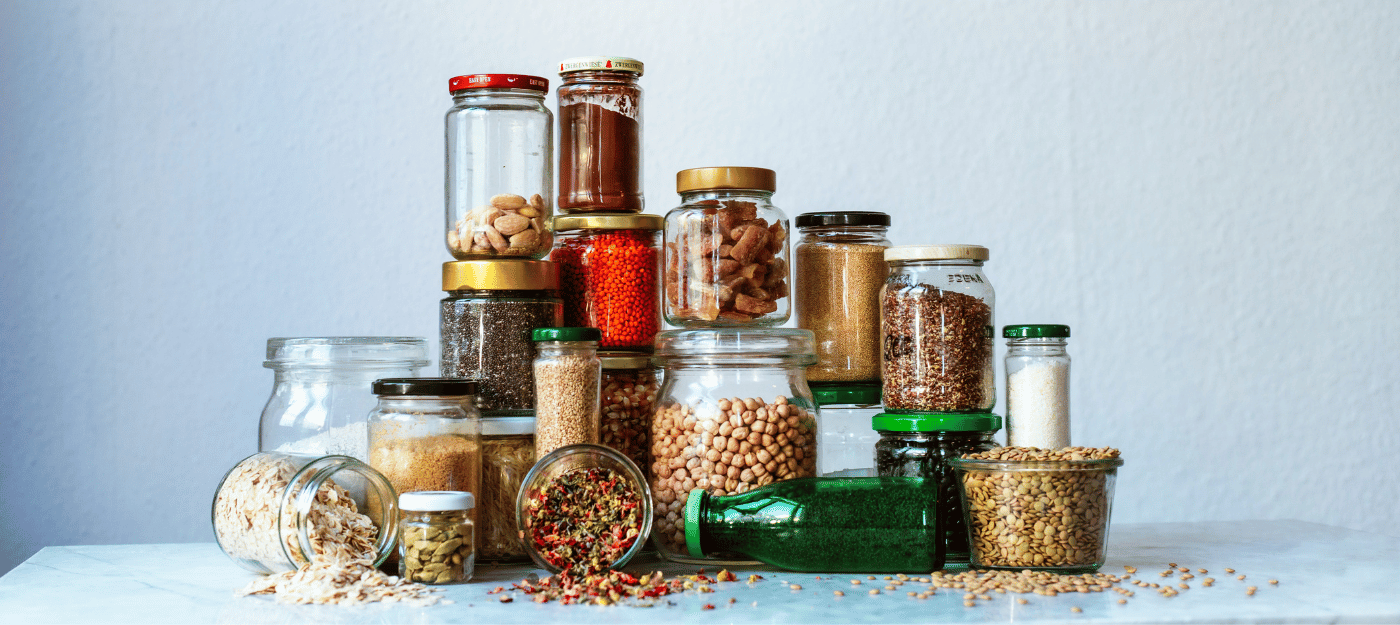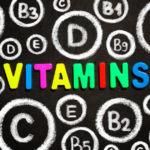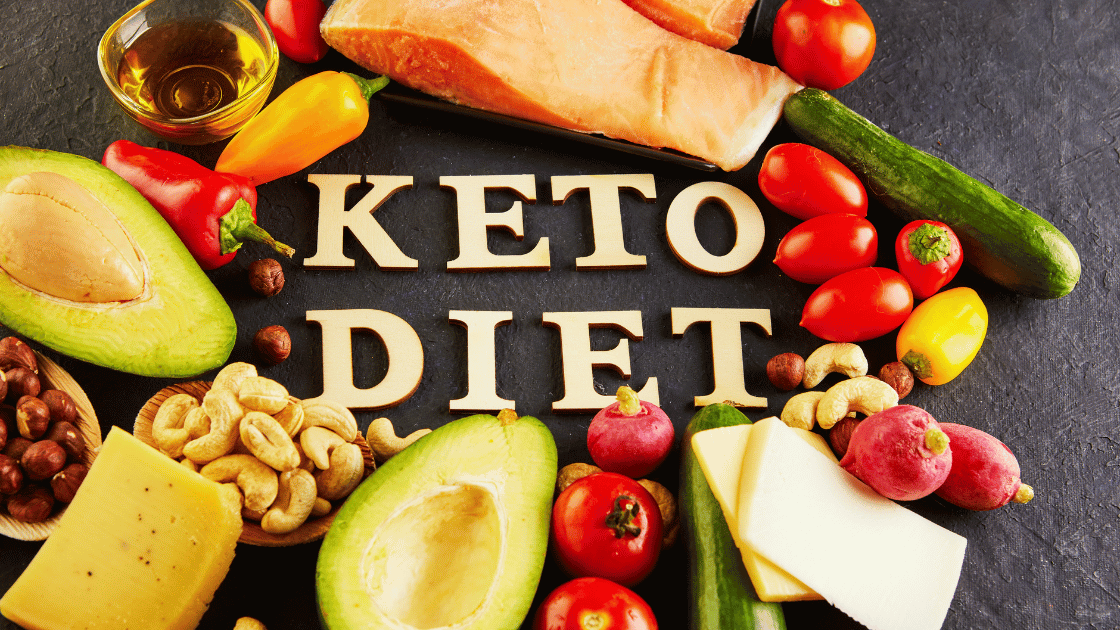What Is a Vegan Diet: Vegan Food Diet List

A vegan diet is a plant-based eating plan that excludes the consumption of animal products such as meat, dairy, and eggs. It has gained increasing popularity in recent years due to its numerous health benefits and the ethical and environmental considerations associated with animal agriculture.
Reasons for Choosing a Vegan Lifestyle
People choose to follow a vegan lifestyle for various reasons:
- Animal welfare: aiming to reduce harm and exploitation of animals.
- Environmental reasons: as animal agriculture is a significant contributor to greenhouse gas emissions and deforestation.
- Health advantages: such as reducing the risk of chronic diseases like heart disease, obesity, and type 2 diabetes.
The Importance of Nutrient-Dense Plant-Based Foods
To fully experience the benefits of a vegan diet, it is essential to focus on consuming a wide variety of nutrient-dense plant-based foods. This includes:
- Incorporating legumes like beans and lentils
- Including nuts and seeds
- Trying tofu and tempeh as protein sources
- Opting for calcium-fortified plant milks and yogurts
- Adding seaweed and nutritional yeast for extra nutrients
- Exploring sprouted and fermented plant foods
- Choosing whole grains and pseudocereals
- Including choline-rich foods such as tofu and cauliflower
- Eating an abundance of fruits and vegetables
By embracing this diverse range of plant-based options, individuals can ensure they consume all the necessary nutrients their bodies need for optimal health. The key takeaway here is that following a vegan diet goes beyond simply eliminating animal products; it involves making conscious choices to prioritize nutrient-dense whole foods that support overall well-being.

Nutritious Foods on a Vegan Diet
The vegan diet offers a wide array of nutritious foods that provide essential nutrients for overall health and well-being. By focusing on consuming a diverse range of plant-based foods, you can ensure that your body receives the necessary protein, vitamins, and minerals to thrive. Here are some key categories of nutritious foods to include in your vegan diet:
1. Legumes
Legumes such as beans, lentils, chickpeas, and peas are excellent sources of protein, fiber, and various vitamins and minerals. They form the foundation of many vegan dishes and offer versatility in cooking.
2. Nuts and Seeds
Incorporating nuts like almonds, walnuts, and seeds such as chia seeds, flaxseeds, and hemp seeds into your meals provides healthy fats, protein, and essential micronutrients.
3. Tofu
Tofu, made from soybeans, is a versatile ingredient that can be used in savory dishes and desserts. It is rich in protein and can absorb flavors well when cooked with seasonings and sauces.
4. Tempeh
Another soy-based product, tempeh is a fermented food that offers a substantial amount of protein along with probiotics that support gut health.
5. Seitan
Also known as wheat gluten or wheat meat, seitan is a high-protein food that can be used as a meat substitute in various recipes.
6. Calcium-Fortified Plant Milks/Yogurts
Many plant-based milk alternatives like almond milk, soy milk, and oat milk are fortified with calcium to support bone health. Similarly, fortified plant yogurts offer additional calcium intake.
7. Seaweed
Seaweed varieties such as nori, kelp, and wakame are rich in minerals like iodine and iron. They can be incorporated into soups, salads, or used as wraps for sushi rolls.
8. Nutritional Yeast
This inactive yeast has a cheesy flavor and is often used to add depth to vegan dishes. It is a good source of B vitamins including B12 for those following a plant-based diet.
9. Sprouted/Fermented Plant Foods
Sprouted grains and fermented foods like kimchi and sauerkraut provide beneficial enzymes and probiotics that support digestion and gut health.
10. Whole Grains/Pseudocereals
Quinoa, brown rice, amaranth, buckwheat are examples of whole grains/pseudocereals that offer complex carbohydrates, fiber, protein, and various micronutrients.
11. Choline-Rich Foods
Choline is an essential nutrient for brain health. Vegan sources include foods like tofu, quinoa, broccoli, and cauliflower.
12. Fruits
Incorporating a variety of fruits into your diet provides essential vitamins, minerals, antioxidants, and dietary fiber.
13. Vegetables
Consuming an assortment of colorful vegetables ensures a broad spectrum of nutrients including vitamins A, C, K1; folate; potassium; dietary fiber; phytonutrients; antioxidants; beta-carotene; lutein; zeaxanthin; quercetin; flavonoids; polyphenols.
Crafting a Balanced Vegan Grocery List
When it comes to creating a well-rounded vegan grocery list, it’s essential to include a variety of plant-based foods that provide the necessary nutrients for a balanced diet. By stocking your pantry and refrigerator with the right ingredients, you can ensure that you always have the building blocks for wholesome and delicious vegan meals at your fingertips.
Essential Items for Your Vegan Pantry
Building a foundation of staple ingredients forms the backbone of many vegan meals. Here are some essential items to consider adding to your vegan pantry:
- Beans: Incorporate a variety of beans such as black beans, chickpeas, kidney beans, and lentils. These versatile legumes are rich in protein, fiber, and essential minerals, making them ideal for soups, stews, salads, and dips.
- Whole Grains: Stock up on whole grains like brown rice, quinoa, barley, and oats. These grains serve as excellent sources of complex carbohydrates, fiber, and various vitamins and minerals. They can be used as the base for grain bowls, pilafs, or porridge.
- Canned Tomatoes: Having canned tomatoes on hand is convenient for preparing sauces, curries, and stews. They add a depth of flavor and richness to dishes while providing essential nutrients like lycopene and vitamin C.
- Nut Butter: Opt for natural nut butters made from almonds, peanuts, or cashews without added sugars or oils. Nut butters are packed with healthy fats, protein, and micronutrients, offering a tasty spread for toast or a flavorful addition to smoothies and dressings.
- Spices and Herbs: Building a collection of spices and herbs allows you to infuse your dishes with vibrant flavors without relying on excessive salt or fat. Essentials like cumin, turmeric, paprika, garlic powder, and basil can elevate your culinary creations.
By keeping these foundational ingredients in stock at all times, you’ll have the flexibility to whip up an array of satisfying vegan meals without feeling limited by your options.
Fresh Produce to Add to Your Shopping Cart
When following a vegan lifestyle, having a well-planned grocery list is essential. It not only saves you time and money at the store but also ensures that you have all the ingredients you need for healthy meals. One important aspect of your vegan grocery list is fresh produce. Here are some tips on selecting the best fruits and vegetables to add to your cart:
1. Leafy Greens
Leafy greens are packed with essential vitamins and minerals. Incorporate a variety of greens such as spinach, kale, Swiss chard, and collard greens into your meals. These can be used in salads, smoothies, stir-fries, or sautéed as a side dish.
2. Berries
Berries are not only delicious but also rich in antioxidants. Add strawberries, blueberries, raspberries, and blackberries to your shopping cart. Enjoy them as a snack, in smoothies, or as a topping for your breakfast oatmeal or vegan yogurt.
3. Citrus Fruits
Citrus fruits like oranges, lemons, limes, and grapefruits are excellent sources of vitamin C. They add a tangy flavor to your dishes and can be used in salads, dressings, marinades, or simply enjoyed on their own.
4. Cruciferous Vegetables
Cruciferous vegetables include broccoli, cauliflower, Brussels sprouts, cabbage, and bok choy. These vegetables are high in fiber and contain important nutrients like folate and vitamin K. Use them in stir-fries, roasted vegetable medleys, or steamed as a side dish.
To ensure that you’re getting the most out of your fresh produce:
- Opt for seasonal fruits and vegetables whenever possible. They tend to be more flavorful and nutrient-dense.
- Consider buying organic produce to minimize exposure to pesticides.
- Wash your produce thoroughly before consuming to remove any dirt or residue.
- Aim for a variety of colors in your selection. Different colors indicate different nutrients, so incorporating a rainbow of fruits and vegetables ensures you’re getting a wide range of vitamins and minerals.
Remember, fresh produce is just one component of a well-rounded vegan diet. Be sure to include other plant-based foods like whole grains, legumes, nuts, and seeds to meet your nutritional needs. With a well-planned grocery list that includes fresh produce, you’ll be on your way to creating delicious and nutritious meals that support your vegan lifestyle.

Navigating the Vegan Aisles: Packaged Foods Worth Considering
When you’re following a vegan lifestyle, it’s important to have a well-thought-out grocery list. This not only saves time and money at the store but also ensures that you have all the ingredients you need to make tasty and nutritious meals. While fresh produce is crucial, there are also many packaged foods that are vegan-friendly and can be convenient options for busy days or when you’re on the move.
Tips for Choosing Nutritious Packaged Vegan Foods
Here are some tips to help you choose healthy options from the growing range of packaged snacks and convenience items that cater to vegans:
1. Read Ingredient Lists
The first step in selecting packaged vegan foods is to carefully read the ingredient lists. Look for foods that contain whole plant-based ingredients and avoid those with added sugars, artificial additives, or excessive sodium. Ingredients are listed in descending order by weight, so if a food item has added sugars or unhealthy fats listed near the beginning, it may not be the healthiest choice.
2. Check for Added Sugars and Sodium
Packaged vegan foods can sometimes be high in added sugars and sodium, which can negatively impact your health if consumed in excess. Be mindful of these ingredients and choose options with minimal added sugars and sodium. Opt for products that are low in added sugars (less than 5 grams per serving) and low in sodium (less than 140 milligrams per serving).
3. Choose Minimally Processed Options
While some packaged vegan foods can be highly processed, there are also many minimally processed options available. Look for foods that have undergone minimal processing and contain recognizable ingredients. For example, instead of reaching for vegan cookies loaded with refined flour and sugar, opt for energy bars made with whole nuts, seeds, and dried fruits.
4. Focus on Nutrient Density
When choosing packaged vegan foods, aim for options that are nutrient-dense and provide a good balance of macronutrients (carbohydrates, protein, and healthy fats) as well as essential vitamins and minerals. Look for foods that are rich in fiber, protein, vitamins, and minerals to ensure that you’re getting the most nutritional value from your snacks and convenience items.
Keeping a Balanced Diet with Packaged Vegan Foods
While packaged vegan foods can be convenient, they should not replace whole, unprocessed foods in your diet. Use them as occasional treats or as a backup option when fresh ingredients are not available. By carefully selecting packaged vegan foods and incorporating them into a well-rounded diet that includes plenty of fruits, vegetables, whole grains, legumes, nuts, and seeds, you can enjoy the benefits of both convenience and optimal nutrition.
Maximizing the Health Benefits of a Vegan Diet
Adopting a vegan lifestyle can have a profound impact on various aspects of your well-being. The health benefits of a vegan diet are numerous and encompass not only personal health but also extend to contributing positively to the environment.
Heart Health
A vegan diet, rich in fruits, vegetables, and whole grains, is naturally low in saturated fat and cholesterol. This can help reduce the risk of heart disease and lower blood pressure, ultimately leading to a healthier heart.
Weight Management
Plant-based diets tend to be lower in calories compared to diets that include animal products. Additionally, the high fiber content in many vegan foods can promote feelings of fullness, potentially aiding in weight management.
Blood Sugar Control
For individuals with diabetes or those at risk of developing it, a vegan diet can help manage blood sugar levels effectively. The emphasis on whole foods and complex carbohydrates can contribute to better glycemic control.
Digestive Health
High-fiber plant foods such as legumes, whole grains, fruits, and vegetables are beneficial for digestive health. They promote regular bowel movements and support a healthy gut microbiome.
By focusing on nutrient-dense plant-based foods, you are not only enhancing your own health but also making a positive impact on your overall well-being.

Optimizing Your Nutrient Intake on a Vegan Diet
Practical advice for ensuring you meet your nutritional needs while following a vegan eating plan:
- Prioritize Variety in Your Meals: Consuming a wide range of plant-based foods is essential to ensure you receive a spectrum of essential nutrients. Incorporate an assortment of fruits, vegetables, whole grains, legumes, nuts, and seeds into your daily meals.
- Pay Attention to Key Nutrients of Concern: While following a vegan diet, it’s crucial to focus on obtaining adequate amounts of specific nutrients that are commonly found in animal products. These include vitamin B12, iron, and omega-3 fatty acids.
- Considering Fortified Foods and Supplements as Needed: To address potential nutrient gaps, consider incorporating fortified foods such as plant milks, breakfast cereals, and nutritional yeast into your diet. Additionally, consulting with a healthcare professional to determine if supplements are necessary for meeting specific nutrient requirements is advisable.
To optimize your nutrient intake on a vegan diet, it’s important to incorporate these key strategies into your meal planning and dietary choices. By being mindful of the essential nutrients your body needs and strategically selecting foods to fulfill those requirements, you can maintain a balanced and nutritionally adequate vegan diet.
Debunking Common Myths About Vegan Diets
Misconceptions about vegan diets often deter individuals from trying or sticking to a vegan lifestyle. However, it’s important to address these myths and provide accurate information. Let’s debunk some common misconceptions about vegan diets:
Myth: Vegans lack sufficient protein.
Fact: It is possible to meet protein needs on a vegan diet. Plant-based sources of protein include:
- Legumes (such as beans, lentils, and chickpeas)
- Tofu
- Tempeh
- Seitan
- Quinoa
- Hemp seeds
These foods are nutrient-dense and can provide all essential amino acids necessary for optimal health.
Example: A vegan meal could consist of a lentil curry with quinoa or a tofu stir-fry with vegetables and brown rice.
Myth: It’s difficult to get enough calcium without dairy.
Fact: While dairy products are commonly associated with calcium intake, there are many plant-based sources of calcium available to vegans. These include:
- Leafy greens like kale and spinach
- Calcium-fortified plant milks and yogurts
- Tofu made with calcium sulfate
- Sesame seeds
- Almonds
- Fortified orange juice
Example: Incorporate a calcium-rich smoothie into your daily routine by blending almond milk, spinach, frozen berries, and a tablespoon of sesame seeds.
Myth: Vegan diets are inherently deficient in essential nutrients.
Fact: With proper planning and attention to nutrient intake, a vegan diet can provide all the essential nutrients needed for optimal health. It is important to focus on consuming a wide variety of plant-based foods that offer key nutrients such as:
- Vitamin B12 (found in fortified foods or supplements)
- Iron (from legumes, whole grains, and dark leafy greens)
- Omega-3 fatty acids (from flaxseeds, chia seeds, and walnuts)
- Zinc (from legumes, nuts, and seeds)
Example: Include a variety of foods in your diet such as lentils, quinoa, flaxseeds, and pumpkin seeds to ensure you’re getting a range of essential nutrients.
Myth: Vegan diets are not suitable for children or pregnant women.
Fact: A well-planned vegan diet can provide all the necessary nutrients for individuals at any stage of life, including children and pregnant women. It is important to consult with healthcare professionals or registered dietitians to ensure proper nutrient intake during these stages. Supplementation may be recommended for certain nutrients like vitamin B12 and iron.
Example: A vegan child’s meal could consist of whole grain pasta with tomato sauce, mixed vegetables, and fortified plant-based milk.
By debunking these common myths about vegan diets, we can dispel misconceptions and encourage individuals to explore the benefits of a plant-based lifestyle. Remember that it’s important to prioritize variety in your meals, pay attention to key nutrients of concern, and consider fortified foods or supplements as needed.
For more detailed information about vegan diets and dispelling common myths, you can visit reputable sources such as The Vegan Society
The Vegan Advantage in Athletic Performance
The vegan diet has gained significant attention in the world of sports and athletic performance. Athletes across various disciplines are embracing veganism and achieving remarkable success in their respective sports. This shift towards plant-based nutrition is challenging traditional beliefs about the relationship between animal products and athletic prowess.
Breaking Stereotypes
Athletes who follow a vegan diet are breaking stereotypes associated with protein consumption and muscle development. They are demonstrating that it is indeed possible to meet the high physical demands of their sports while adhering to a plant-based lifestyle.
Improved Recovery
Many athletes have reported improved post-exercise recovery and reduced inflammation after transitioning to a vegan diet. The abundance of antioxidants and anti-inflammatory compounds found in plant-based foods may contribute to faster recovery times, allowing athletes to train more effectively.
Enhanced Endurance
Plant-based diets are known for their complex carbohydrates and high-fiber content, which can provide a sustained release of energy. This can be particularly advantageous for endurance athletes, allowing them to maintain energy levels throughout prolonged training sessions and competitions.
Weight Management
Vegan diets, when well-planned, can support athletes in meeting their weight management goals. The focus on nutrient-dense, whole foods can aid in maintaining an optimal body composition, which is crucial for many sports.
Nutrient-Rich Foods
By consuming a wide variety of plant-based foods, athletes can benefit from an array of essential nutrients, including vitamins, minerals, and phytonutrients that support overall health and performance.
The success stories of athletes thriving on vegan diets are dispelling myths about the limitations of plant-based nutrition in sports. Their achievements are inspiring others in the athletic community to explore the benefits of a vegan lifestyle for performance enhancement.
This paradigm shift in the world of sports nutrition underscores the potential for plant-based diets to not only meet but also exceed the nutritional requirements of athletes across different disciplines. As more research emerges and more athletes share their experiences, it becomes increasingly evident that a well-planned vegan diet can be a powerful ally in optimizing athletic performance and overall well-being.

The Future Is Vegan: Promoting Sustainability Through Food Choices
The environmental implications of animal agriculture are significant and adopting a vegan diet can contribute to a greener planet. Here are some key points to consider:
1. Reducing Greenhouse Gas Emissions
Animal agriculture is a major contributor to greenhouse gas emissions, particularly methane and nitrous oxide. According to the United Nations, the livestock sector is responsible for about 14.5% of global greenhouse gas emissions, which is more than the entire transportation sector combined. By adopting a vegan diet, you can significantly reduce your carbon footprint and help mitigate climate change.
2. Preserving Natural Resources
Animal agriculture requires vast amounts of land, water, and energy. It takes approximately 1,800 gallons of water to produce just one pound of beef. In contrast, plant-based foods require much fewer resources to produce. By choosing plant-based options, you can help conserve water, reduce deforestation for livestock grazing, and minimize the depletion of natural resources.
3. Protecting Biodiversity
Livestock farming often leads to habitat destruction and loss of biodiversity. Large areas of forests are cleared to make way for livestock grazing or growing animal feed crops like soybeans and corn. This destruction threatens wildlife habitats and contributes to species extinction. By embracing veganism, you can contribute to the preservation of biodiversity and protect vulnerable ecosystems.
4. Minimizing Pollution
Animal agriculture is a major source of water pollution through the release of animal waste into rivers and oceans. This waste contains harmful substances such as nitrogen and phosphorus, which can lead to algal blooms and oxygen depletion in aquatic environments. Choosing plant-based foods helps reduce this pollution and promotes cleaner water systems.
5. Promoting Sustainable Food Production
Veganism encourages a shift towards more sustainable farming practices. Organic farming methods that prioritize soil health, crop rotation, and natural pest control are often more aligned with plant-based agriculture. By supporting sustainable farming practices, you contribute to the overall health of our ecosystems and promote a more sustainable food system.
By adopting a vegan diet, you can make a positive impact on the environment and contribute to a more sustainable future. Your food choices have the power to promote biodiversity, conserve resources, reduce pollution, and combat climate change. Embracing veganism is not only beneficial for your health but also for the well-being of our planet.
“The future is vegan, where our food choices align with our values and contribute to a greener and more sustainable world.” – Unknown
- United Nations Food and Agriculture Organization (FAO). (2013). Tackling climate change through livestock: A global assessment of emissions and mitigation opportunities.
- Water Footprint Network. (2021). Water footprint factsheet.
- Poore, J., & Nemecek, T. (2018). Reducing food’s environmental impacts through producers and consumers. Science, 360(6392), 987-992.
- United Nations Environment Programme (UNEP). (2016). Marine pollution: Causes and consequences.
Embracing a Vegan Lifestyle for the Long Run
Encouraging long-term commitment to veganism can be a fulfilling and sustainable choice. Here are some key points to consider:
Connect with the Global Vegan Community
Engaging with like-minded individuals can provide valuable support, inspiration, and resources for maintaining a vegan lifestyle. Online platforms, local meetups, and social events can connect you with a supportive community.
Explore New Recipes and Cuisines
Keeping meals exciting and diverse is essential for sustaining a long-term vegan diet. Experimenting with new ingredients, trying different cooking techniques, and exploring various global cuisines can make the experience enjoyable and adventurous.
Embrace the Evolution of Vegan Products
The growing popularity of veganism has led to an expansion of innovative plant-based products. Embracing these new options can add excitement and variety to your meals while supporting the progress of the vegan movement.
Educate Yourself Continuously
Staying informed about nutrition, ethical considerations, environmental impact, and advocacy efforts within the vegan community can reinforce your commitment and provide a sense of purpose in your journey.
Lead by Example
Sharing your positive experiences with others in a non-judgmental manner can inspire those around you to explore plant-based options and consider the benefits of a vegan lifestyle.
By embracing these strategies, you can cultivate a sustainable and enriching long-term vegan lifestyle that aligns with your values and contributes to a healthier planet.
All content on this website is for general informational, educational, and entertainment purposes only. It is not a substitute for professional advice in any field, including but not limited to health, fitness, nutrition, wellness, finance, legal, technology, or lifestyle.
While we strive for accuracy, we make no guarantees about the completeness, reliability, or suitability of the information. Any action you take based on this content is at your own risk.
Always consult a qualified professional before making decisions related to health, finances, legal matters, or any other specialized area. The website and its authors are not liable for any loss, injury, or damage resulting from use of this information.






